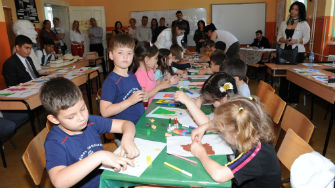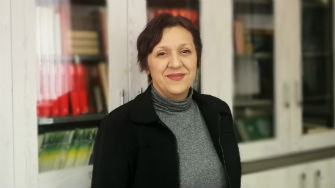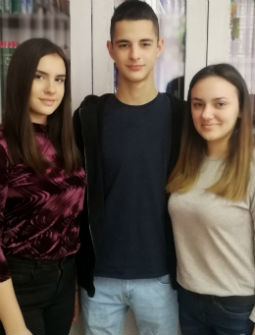Fostering a democratic school culture
Civic spirit, peaceful conflict resolution and inter-cultural dialogue in one place
"Our role is to be neutral, not to choose anyone’s side, and peaceful means help the two sides to agree and find a solution. Now I know how to react in certain situations. We have learned to say what we think, and to hurt no one, and now we teach it to the younger children," said Nevena Jovanovic, student at the “Miloje Vasic” Secondary School in Veliko Gradiste.

"The development of skills for critical and analytical thinking is particularly important to them, we have also worked on openness to other cultures and practices and the civic spirit in order to inform students that they have rights, but also obligations, regardless of which community they belong to," says Velina Stojkovic, project co-ordinator at the school.

The purpose of the project is to raise awareness of democratic culture among teachers, students, local communities. Interculturality is not a novelty in this school near the border with Romania, they have also participated in the exchange of students, and host parents say that this kind of exchange really is experiential learning.
Vesna Miloradovic hosted pupils at her home twice for a year, girls from Russia and America. "I consider that my children have learned a lot and that it was a valuable experience for them to use in their future lifetime" she says. Vesna adds that they were a support for those children to fit in, learn the language, and accept different culture and customs.
In the framework of fostering a civic spirit, this school has decided to devote time to learning about endangered fauna and in the local environment. Goran Misic, a biology professor, said that students now behave differently towards nature. "Democratic values rely on the concept of human rights. The fifth is the right to a healthy and protected environment. It does not cost anything; we just need to take care of our environment.” The workshop for children from kindergartens prepared by the students was very successful.

Democratic culture aims to raise the quality of education by applying principles based on European standards and practices. In total 20 schools in the region participated and built up competences significant for the development of cultural democracy.

